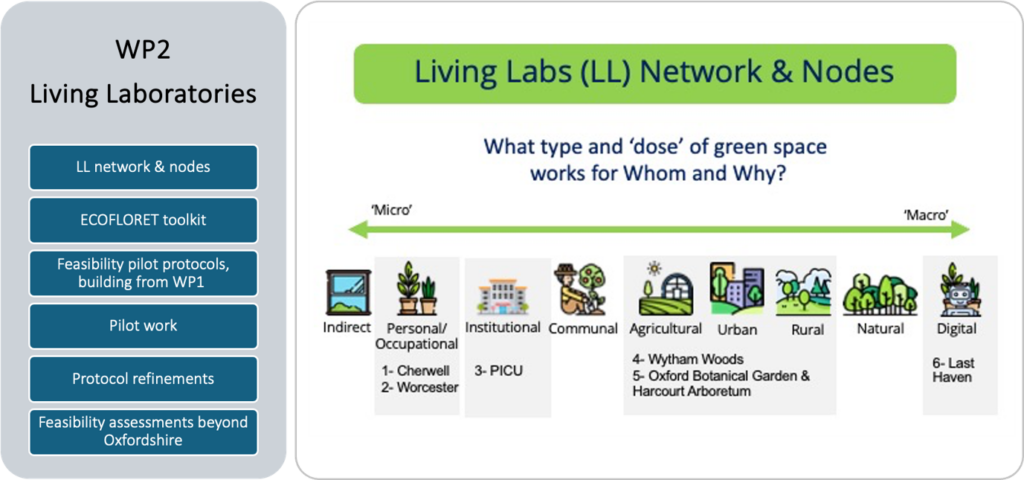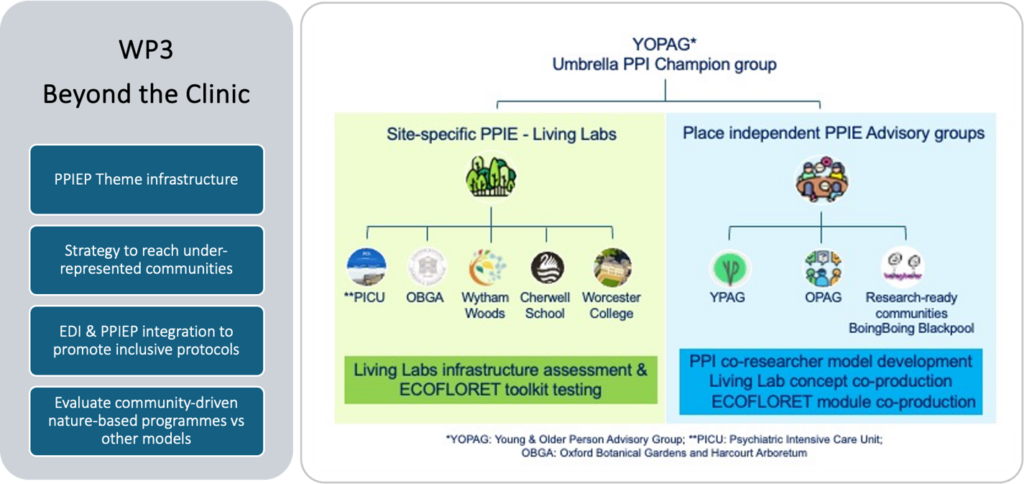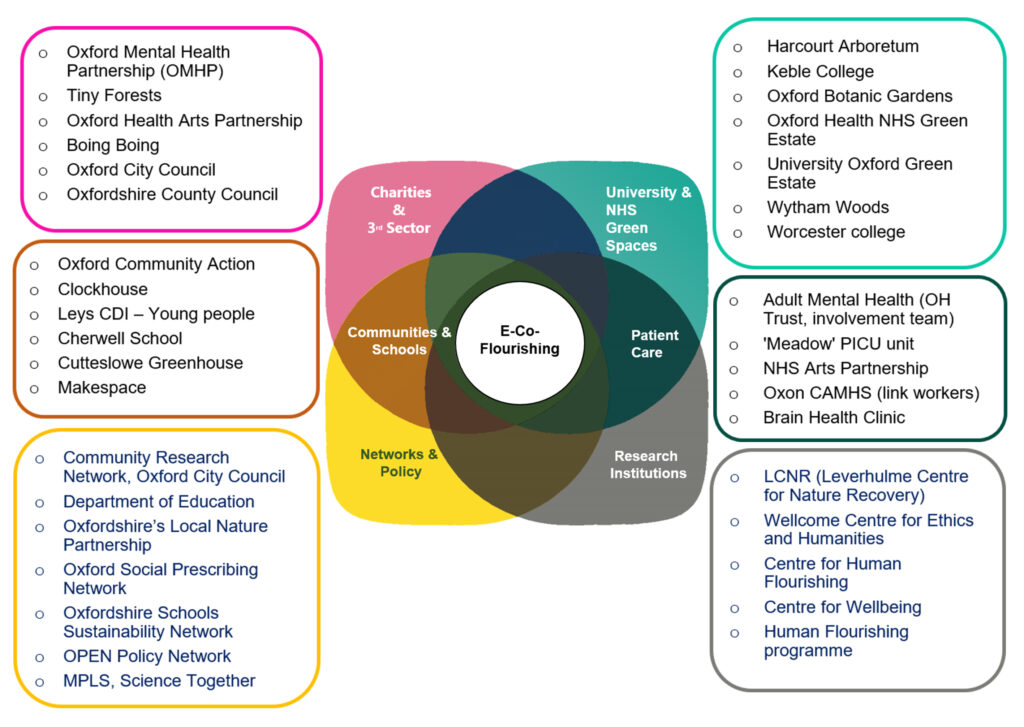Theme lead
Research Focus
This Theme is dedicated to advancing the science of mental health and wellbeing through the development of innovative, nature-based interventions that promote both human and planetary flourishing. Termed Ecological Collective Flourishing (E-Co-Flourishing), the approach integrates physical, emotional, social, and ecological dimensions of wellbeing. The research aims to understand and harness the mechanisms by which engagement with green spaces and cultural institutions can support mental health, particularly in non-clinical settings. By developing and testing scalable, evidence-based programmes, the Theme seeks to contribute to a new model of preventative mental healthcare rooted in community and environmental engagement.
Regional Context
The research is led from Oxford, including its Gardens, Libraries and Museums (GLAM), in collaboration with Blackpool research initiatives and the Universities of Birmingham and Reading. These diverse settings serve as “Living Laboratories” where real-world interventions can be tested and refined. The inclusion of both urban and rural environments ensures that findings are applicable across a range of social and ecological contexts. The collaboration brings together expertise from mental health science, environmental studies, plant sciences, humanities, and economics, and is supported by partnerships with community organisations, charities, and public institutions.
Research Aims
The Theme is structured around three interlinked work packages (WPs), each designed to investigate different aspects of ecological flourishing and its impact on mental health:
- WP1: Flourishing Mechanisms – Innovations in Discovery Science
This work package aims to identify the biological, psychosocial, and environmental mechanisms that underpin flourishing. Drawing on interdisciplinary expertise, the research will develop protocols to link nature-based experiences with measurable mental health and wellbeing outcomes. The goal is to establish a robust scientific framework for understanding how ecological engagement supports human flourishing. - WP2: Living Laboratories – Real-World Research Infrastructure
This package focuses on developing experimental infrastructure in non-clinical settings such as gardens, museums, and workplaces. Using participatory research methodologies, the team will explore which environments and approaches are most effective in promoting flourishing across psychological, social, physical, and ecological dimensions. The research will inform the design of tailored interventions for specific populations, including young people and older adults. - WP3: Innovations for Ethical Flourishing Beyond the Clinic
Building on prior co-design and engagement work, this package will develop novel public mental health initiatives that are accessible, inclusive, and relevant to diverse communities. The emphasis is on creating interventions that are ethically grounded and capable of addressing systemic inequalities in mental health support.



Impact
This Theme addresses a critical need for non-clinical, preventative approaches to mental health and wellbeing. By embedding research within trusted community settings and focusing on ecological engagement, the work has the potential to transform how mental health support is delivered. The findings will inform national mental health infrastructure, support social prescribing initiatives, and contribute to environmental sustainability. In parallel, the Theme will build interdisciplinary research capacity and foster innovation at the intersection of mental health, community engagement, and planetary health.






